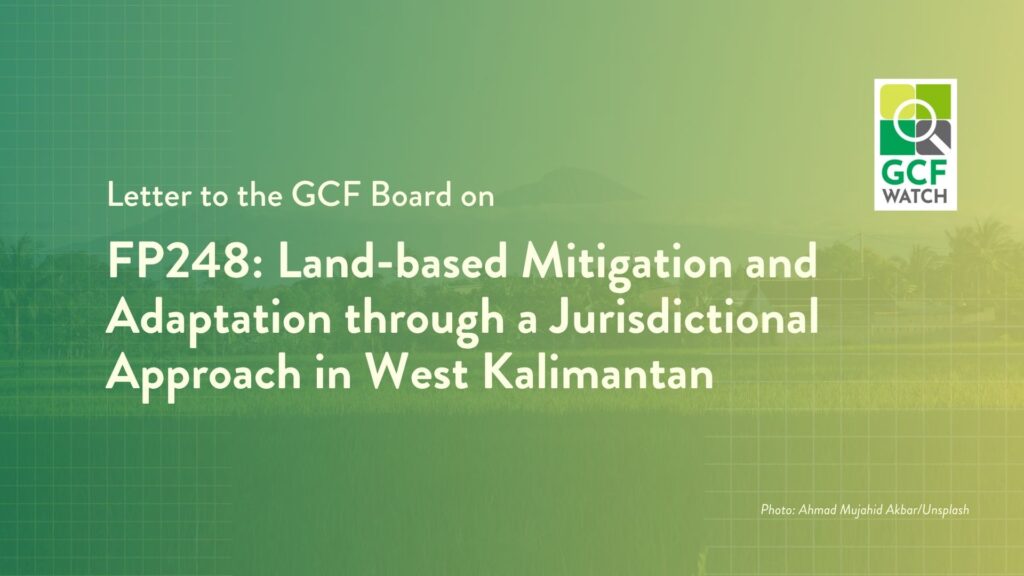The Green Climate Fund (GCF) observer network of civil society organizations, Indigenous Peoples and local communities welcomes the new pledges countries made for the GCF’s ongoing second replenishment at the UN Secretary General’s Climate Ambition Summit in New York in response to his call to create momentum, turn up the tempo, and turn the tide on urgently needed climate action.
Just weeks before the GCF pledging conference in Bonn on October 5th, the new announcements were encouraging, but far from sufficient. Finance is imperative to fulfill the goals of the Paris Agreement, and in a world where climate impacts are worsening, the most effective climate finance is that provided in this present moment.
Developed country contributors— especially those that have not yet come forward—must step up their commitments. While many contributors are touting their small increases, they are doing so against a baseline of pledges made in 2019, and since then, the world has experienced four years with catastrophic climate and economic impacts, including inflation rates that call into question whether many of these pledged increases are real.
Fulfilling promises and scaling up the delivery of climate finance is essential for global collaborative efforts and renewed climate multilateralism and trust-building in light of what is likely the hottest year on record, with increasingly devastating climate impacts on developing countries and especially the poorest and most marginalized communities and people.
The pledging conference on October 5th is an opportunity for all current, past, and potential contributors to consider the real value of the finance they should be providing to countries with undeniable adaptation and mitigation needs. This replenishment signals whether countries are coming to the table at COP28 later this year in Dubai with real commitment or empty rhetoric, and whether they are listening to the voices of countries such as the Cook Islands, Palau, and Barbados, who called for GCF replenishment at the summit.
The GCF is the central multilateral climate fund under the UNFCCC, designed to channel new, additional, adequate, and predictable financial resources to developing countries. Civil society organizations, as well as developing countries, advocated for the GCF’s governance structure—in which contributing and recipient countries have equal voice and vote—as a core element that challenges the status quo of untransparent, “donor-driven”, and ineffective modes of finance.
Therefore, we urge developed country Parties to contribute their fair share to the GCF replenishment, especially those countries that have not contributed, only contributed in the initial resource mobilization, or not fulfilled their pledges in the past, and to deliver 100% of their commitments in the form of grants. We call on those contributors who have already pledged to consider the summit as more than an opportunity to tout their actions and reflect upon the information shared, the collective calls for action, and the depth of the need, and respond by increasing their commitment at the pledging conference. Finance must be responsive to be meaningful.
The GCF has the potential to be responsive to mitigation and adaptation needs, while building capacity to implement best practice environmental and social safeguards and ensure Indigenous Peoples’ rights, gender equality, meaningful consultation and participation, including Indigenous Peoples’ right to Free, Prior and Informed Consent (FPIC), transparency, and access to remedy. GCF financing thus leverages its network to raise the bar on effective, rights-based climate action.
While voluntary contributions from other Parties are welcome, developed country Parties must be the primary contributors for GCF-2, in line with the Paris Agreement and their obligations under the UNFCCC and international law. A successful GCF replenishment serves as a clear sign of Parties’ commitment to the implementation of the Paris Agreement.
###









1 Comment.
[…] NOTE TO THE READER: The GCF Observer Network of Civil Society, Indigenous Peoples, and Local Communities Active Observer Team released an updated statement on the second replenishment, in response to announcements made at the Climate Ambition Summit in September 2023. You may access the updated statement here. […]